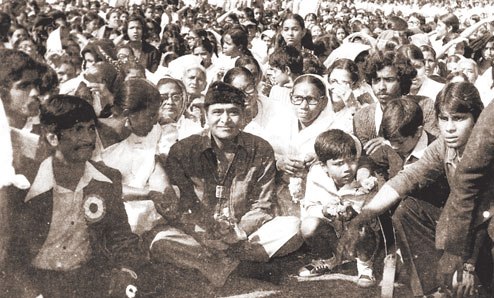The whole northeastern region is on the boil right after the Citizenship Amendment bill received a nod from the union cabinet. People from Mizoram, Meghalaya and Manipur took to the streets to protest against the legislation. But soon, after the bill was taken up in the parliament, Assam found itself in a state of jeopardy and drastically turned out to be the epicenter of massive anti-citizenship bill protests.
But why such furor only in one state?
A sense of fear has prevailed amongst the people of Assam that this legislation is primarily going to help the illegal Bengali Hindu migrants from Bangladesh – whose population is huge in that particular region. According to the protesters, not other states but it was Assam who bore the brunt of immigrants from 1951 to 1971 and hence it is unfair to impose more in their region. They say that this will do nothing but abrogate the Assam Accord.
Now, this is what Assam Accord means…
A six-year agitation demanding identification and deportation of illegal immigrants was launched by the All Assam Students’ Union (AASU) in 1979. The massive and violent agitation killed more than 880 people over six years.
The agitation finally ended in 1985 after the Government of India signed Assam Accord.

The Assam Accord was a Memorandum of Settlement (MoS) signed between representatives of the Government of India and the leaders of the Assam Movement in New Delhi. The date of detection and deportation of foreigners was put as March 25, 1971 in the accord, while in case of other states, it is 1951.
Now, this new legislation – the Citizenship amendment bill, has come up with a new cut-off date which is 2014 and hence, the protesters say that it will abrogate the existing accord.
What is Clause 6 of the Assam Accord?
The clause 6 of the accord reads, “Constitutional, legislative and administrative safeguards, as may be appropriate, shall be provided to protect, preserve and promote the cultural, social, linguistic identity and heritage of the Assamese people”.
The Citizenship Amendment bill has been passed in both the houses (Lok Sabha and Rajya Sabha) in the parliament and now awaits a nod from the President for the law to be implemented. The Bill seeks to amend the Citizenship Act, 1955 to make illegal migrants who are Hindus, Sikhs, Buddhists, Jains, Parsis and Christians, excluding Muslims, from Afghanistan, Bangladesh and Pakistan eligible for Indian citizenship. The Bill relaxes the requirement of residence in India from 11 years to six years for these migrants.
(Image: Assam movement in 1979)

